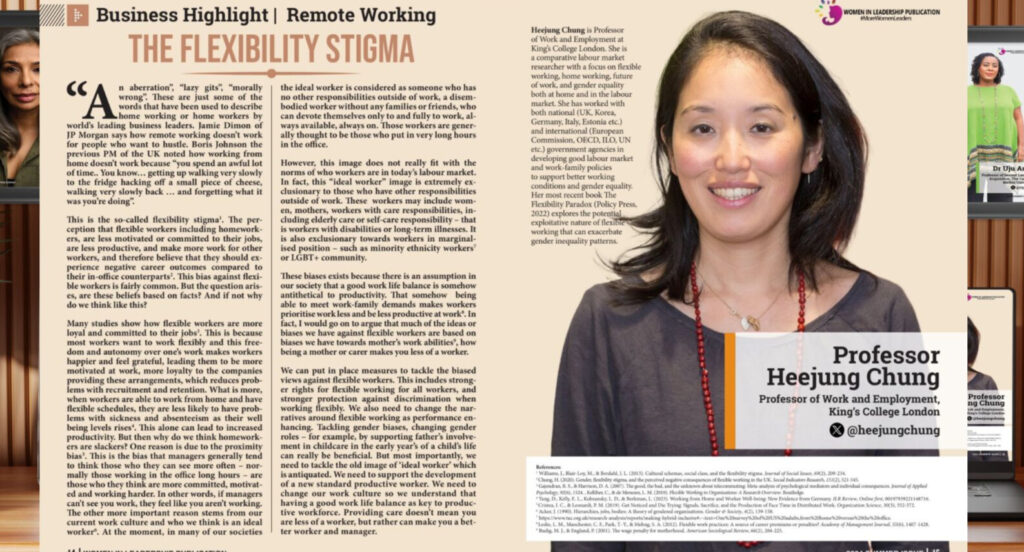As remote work becomes an increasingly common feature of the post-pandemic labour market, questions around work-life balance, flexibility, and employee wellbeing have taken centre stage in public debate. TRANSEUROWORKS partner Professor Heejung Chung has recently contributed to this conversation through a series of high-profile media appearances and publications.
In a thought-provoking article for Women in Leadership (WIL) Magazine, titled “Remote working: The Flexibility Stigma,” Professor Chung examines how employees who use flexible work arrangements—especially women—are often perceived as less committed or productive. This “flexibility stigma” can discourage workers from using remote options even when such arrangements would improve their work-life balance.
Chung also explored these issues in two interviews with the BBC, where she was invited to discuss the growing global debate around the right to disconnect—a policy movement aimed at protecting employees’ ability to switch off from work-related communications outside of working hours. One interview aired on BBC World Service’s Outside Source, focusing on the Australian Right to Disconnect law, while the other appeared on BBC Radio 4’s World at One, contextualising the debate in broader European labour trends.
These media contributions are closely aligned with the TRANSEUROWORKS research agenda, which includes an in-depth analysis of how modern labour arrangements intersect with social protection systems, mental health, gender equality, and changing workplace norms. By bringing academic insights to a wider audience, Professor Chung exemplifies the project’s commitment to knowledge transfer and societal impact.
Read the article: Women in Leadership Magazine – The Flexibility Stigma
Listen to the BBC World Service interview: Outside Source https://lnkd.in/dPPggA-S
Listen to the BBC Radio 4 segment: World at One https://lnkd.in/dwcch7H9

